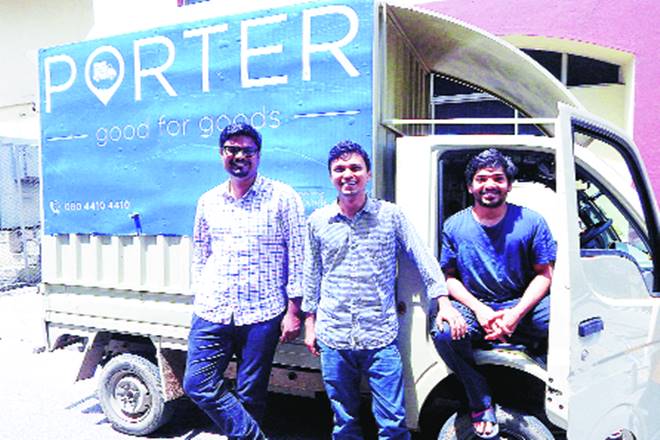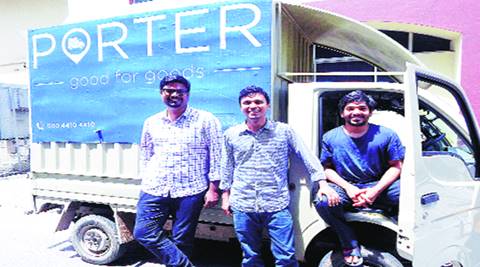
India has replicated Western models of e-tailing, e-payment, and e-learning, but when it comes to logistics and delivery there are challenges unique to the country given its complex geography and clusters of Tier II and Tier III cities which account for bulk of the demand for most e-commerce companies. “There are four pain points—loading time, pick-up time, unloading time and the time taken between two trips. All these are inefficiencies in the system,” says Pranav Goel, co-founder and CEO of Porter, an online logistics marketplace. It was launched by IIT graduates Goel, Uttam Digga and Vikas Chaudhary in August 2014.
“The waiting time between the two trips is long because the sector is unorganised and there is volatility in the demand curve too. To make loading and unloading efficient, we introduced per minute pricing which wasn’t there earlier. So, the customer takes less time and that allows the driver to take multiple trips,” Goel explains.
Porter is seeking to change the average trip count of a driver to 2.5 from the current 1.2. “Through heat mapping we suggest a location to the driver where he is more likely to find a trip,” he adds. The user can install the Porter app and orders are managed by it, which uses the phone’s GPS for tracking the vehicle’s movement.
The start-up offers intra-city logistics services in Mumbai, Bengaluru, Delhi, Chennai and Hyderabad. “Till March, we will be consolidating our operations in these cities. Later in 2017, we will launch our services in two more cities—Pune and Ahmedabad. After this, we will launch our operations in three to four new cities every year,” says Goel.
Porter has a subscription based as well as on-demand revenue model. Under the on-demand model, it charges base fare, per kilometre charge and time charge, earning 20% commission on every trip. “In Mumbai, we are making money and have achieved break-even in Bengaluru. But in other cities we are subsidising so our blended average (commission) is in negative of 3-4%,” he says.
Larger consumers opt for a fixed charge under the subscription model and the contract lasts for two to three months. However, Porter earns 70% of its revenue through the on-demand model. Its clients includes e-commerce players such as Amazon, Delhivery, Myntra and Furlenco. In the FMCG space it has ITC, and in logistics, GATI and DHL among its clients. It has 50 institutional clients and 25,000 customers in the small and medium enterprises segment.
As an additional revenue stream, it is also looking at advertising options on trucks with vinyl wrapping . “Trucks allow a much larger area for wrapping such as flex. We have explored this in Hyderabad and Chennai and in terms of revenue we are getting about Rs 5,000-6,000 per month per vehicle,” Goel says.
In 2015-16, Porter had clocked revenue of Rs 18-19 crore. However, it is expecting a 25% drop in 2017-18 due to demonetisation, though since November 8 the number of transactions on Porter Wallet has risen four times. “We have seen 15-20% dip in demand but I think there must have been a drop of 50-60% for most businesses. Since we have digital means of transactions we haven’t seen that kind of drop,” he adds.

